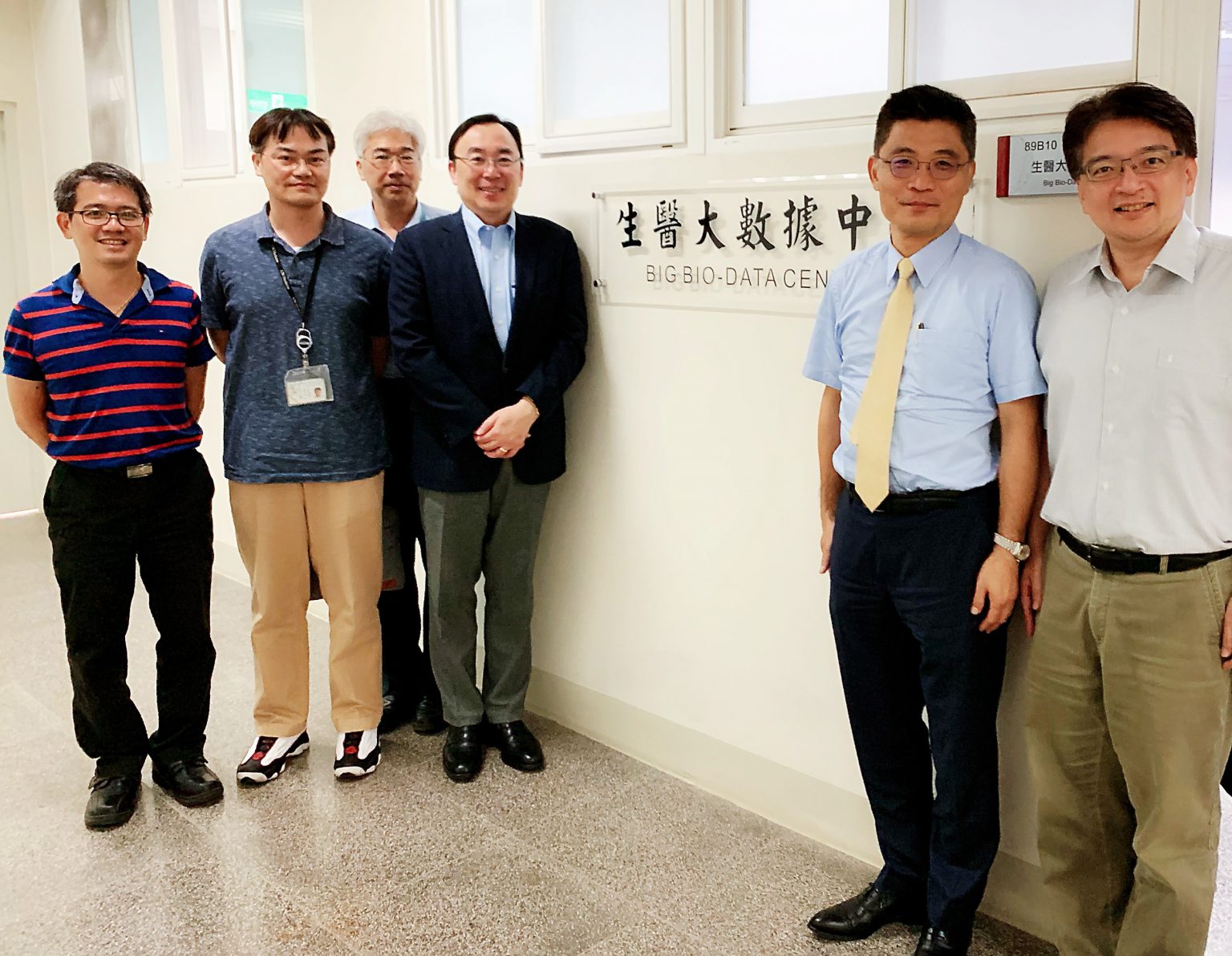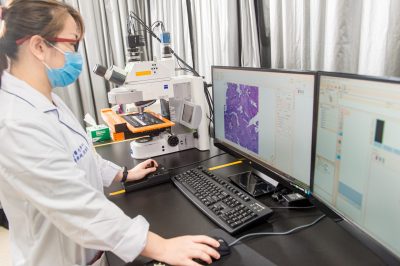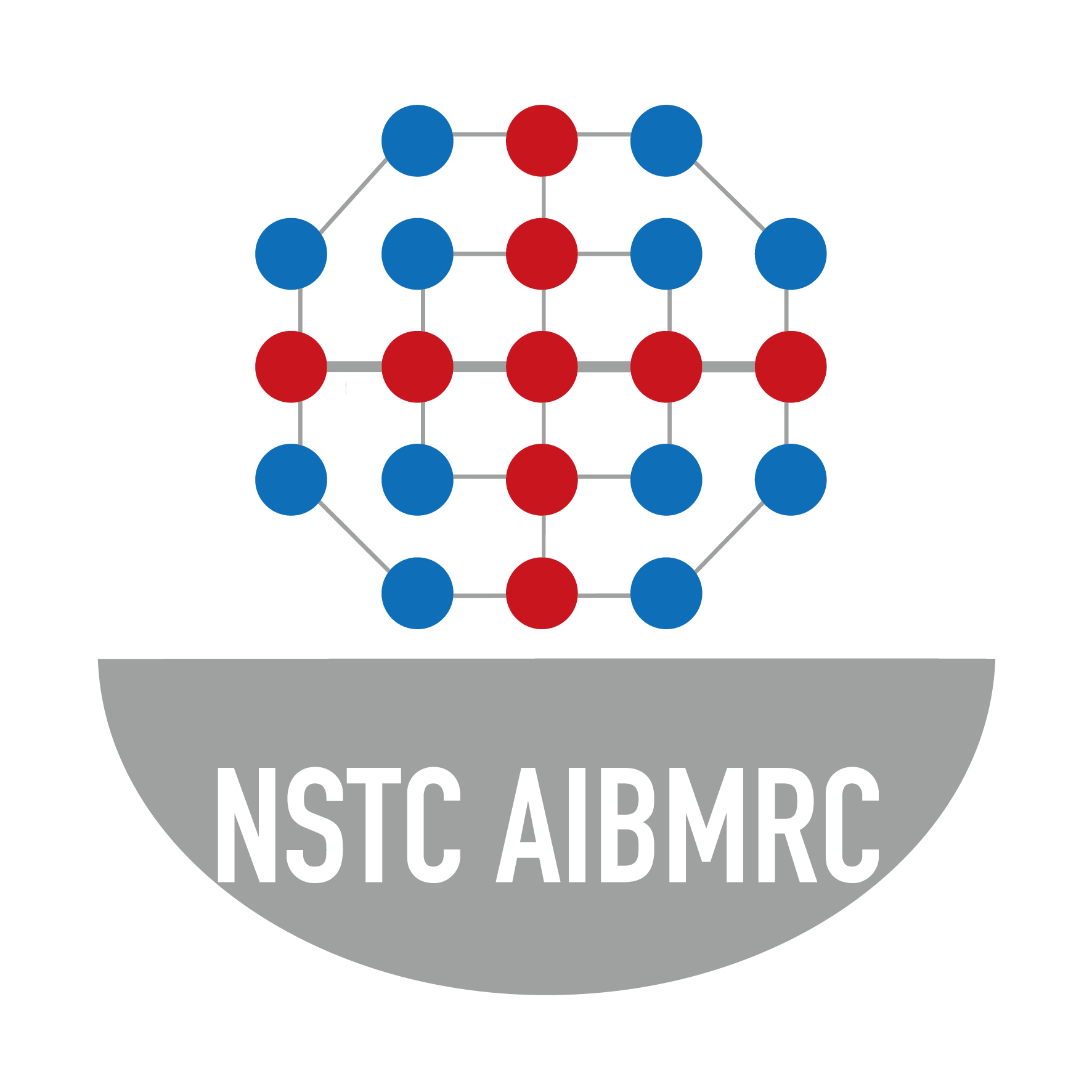
Integrating clinical and genomic profiles to develop the therapeutic strategies for high risk colorectal cancer via big bio-data analytics
Principal Investigator
|
Meng-Ru Shen, Professor
Pharmacology Dept, NCKU
Co-Principal Investigator|
Pei-Fang Su, Associate Professor Statistics Dept, NCKU
Pei-Fang Su, Associate Professor Statistics Dept, NCKU
Peng-Chan Lin, Assistant Professor Internal Medicine Dept, NCKU
Yu-Min Yeh, Attending Physician Internal Medicine Dept, NCKU Hospital
Co-Principal Investigator|
Pei-Fang Su, Associate Professor Statistics Dept, NCKU
Pei-Fang Su, Associate Professor Statistics Dept, NCKU
Peng-Chan Lin, Assistant Professor Internal Medicine Dept, NCKU
Yu-Min Yeh, Attending Physician Internal Medicine Dept, NCKU Hospital
Project Intro
Colorectal cancer (CRC) is the most commonly diagnosed gastrointestinal cancer and the third most common cause of cancer-related death in the United States and Taiwan. However, recurrence is common and is seen in nearly 30% of stage III colorectal cancer patients receiving adjuvant chemotherapy after 5 years. Current clinic-pathologic information is inadequate for prediction of colon cancer recurrence, providing the therapeutic targets and biomarkers for monitor. To build up the genomics landscape of colorectal cancer stage III patients and identify the clinical use of genetic molecular markers to predict the risk of recurrence are needed. We have established a multiple- disciplinary research team, many experts from the college of engineering and computing engineering, biostatics, medicine to approach the cancer genomics. Comparing with the benchmark of The Cancer Genome Atlas (TCGA) cancer genomics datasets, we have established more comprehensive big biodata form a prospective clinical trial in CRC cancer patients. We also find the ethnic difference of genetic variants and publish article in high impact journal. In this study, we will develop artificial intelligence (AI) model and software for high risk cancer recurrence prediction, new treatment strategies and treatment monitor. We will conduct 3 subprojects for interpretation and discovery of biological insights and molecular mechanisms in recurrence risk prediction for CRC. The subprojects aim as followings: subproject1. development of genomic AI model and software for CRC risk prediction; subproject 2. identify the drug targets and find the new treatment strategies by using machine learning pipeline in CRC patients; subproject 3. update our big bio-data and develop predictive biomarkers In conclusion, this integrated AI genomic and mechanistic study provides insights into the disease biology and diagnostic classification of advanced colorectal cancer that could have a direct effect on treatment recommendations for patients, and provides opportunities for genome-guided clinical trials and drug development.
Colorectal cancer (CRC) is the most commonly diagnosed gastrointestinal cancer and the third most common cause of cancer-related death in the United States and Taiwan. However, recurrence is common and is seen in nearly 30% of stage III colorectal cancer patients receiving adjuvant chemotherapy after 5 years. Current clinic-pathologic information is inadequate for prediction of colon cancer recurrence, providing the therapeutic targets and biomarkers for monitor. To build up the genomics landscape of colorectal cancer stage III patients and identify the clinical use of genetic molecular markers to predict the risk of recurrence are needed. We have established a multiple- disciplinary research team, many experts from the college of engineering and computing engineering, biostatics, medicine to approach the cancer genomics. Comparing with the benchmark of The Cancer Genome Atlas (TCGA) cancer genomics datasets, we have established more comprehensive big biodata form a prospective clinical trial in CRC cancer patients. We also find the ethnic difference of genetic variants and publish article in high impact journal. In this study, we will develop artificial intelligence (AI) model and software for high risk cancer recurrence prediction, new treatment strategies and treatment monitor. We will conduct 3 subprojects for interpretation and discovery of biological insights and molecular mechanisms in recurrence risk prediction for CRC. The subprojects aim as followings: subproject1. development of genomic AI model and software for CRC risk prediction; subproject 2. identify the drug targets and find the new treatment strategies by using machine learning pipeline in CRC patients; subproject 3. update our big bio-data and develop predictive biomarkers In conclusion, this integrated AI genomic and mechanistic study provides insights into the disease biology and diagnostic classification of advanced colorectal cancer that could have a direct effect on treatment recommendations for patients, and provides opportunities for genome-guided clinical trials and drug development.



Platform Capabilities
- Generate cancer genetic maps and predict various cancer risks
- Predict tumor recurrence using CT imaging and gene expression
- Routinely track the status of treated patients & alert patients that are high risk for recurrence
- Combining digital biopsies and gene mutation patterns to distinguish subtypes of colorectal cancer, and provide corresponding clinical care
Cooperating Partners
- Vanderbilt University, USA
- NCKU Hospital, Tainan
- NCKU Hospital, Dou-Liou Branch
- Ministry of Health and Welfare Tainan Hospital
- Kuo General Hospital, Tainan
Contact info
Tel :06-2353535#5505
Mail:mrshen@mail.ncku.edu.tw
Tel :06-2353535#5505
Mail:mrshen@mail.ncku.edu.tw
